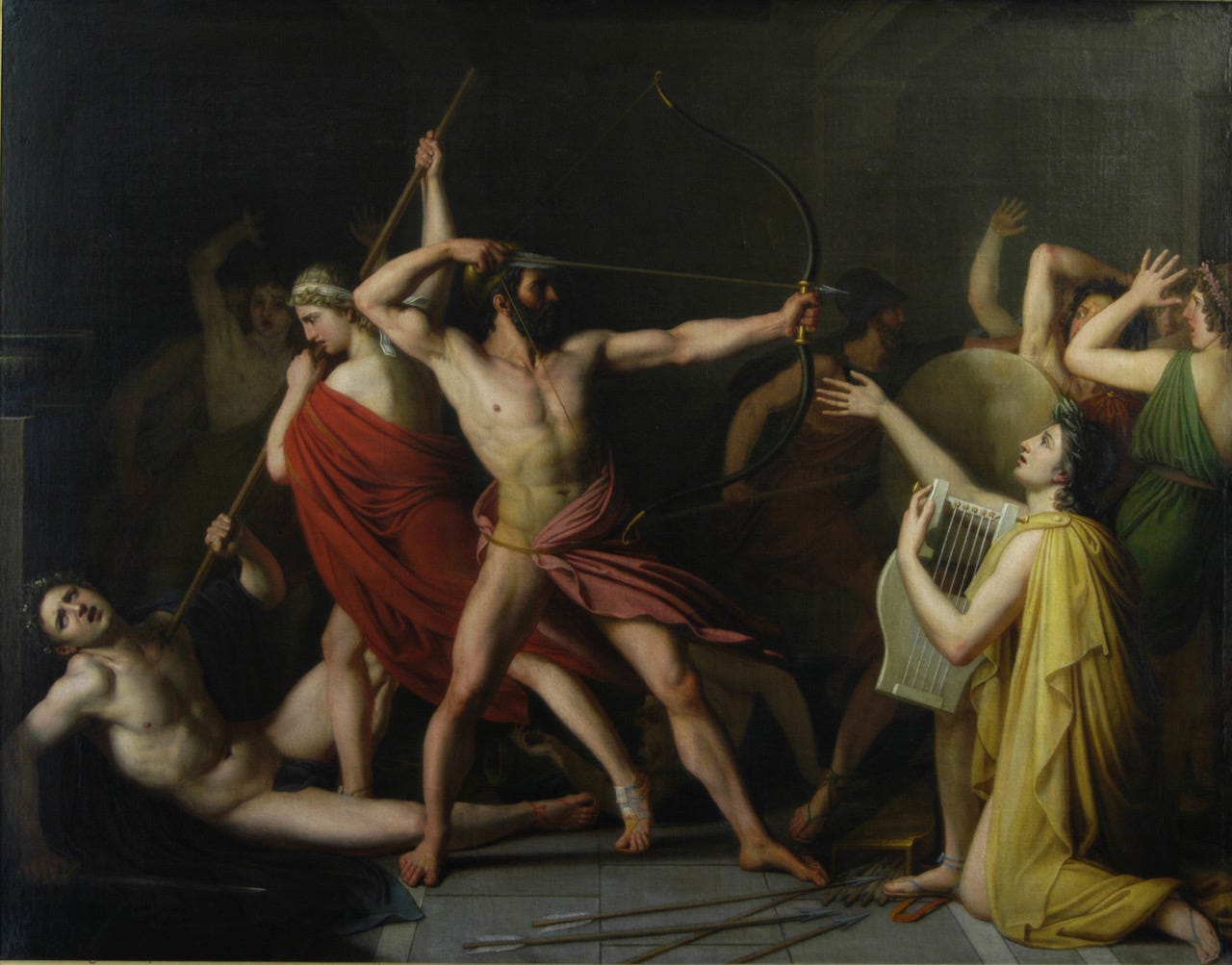Odyssey: Three Thousand Years of Progress?
📍Pharping, Nepal (Issue 201)
The Odyssey is a literary fossil; for that reason alone, it’s a delight. Homer wrote it some 2,750 years ago (roughly), and here I am reading it! How many sunsets and high tides and summer solstices have passed since then? Loads. Billions upon billions of birthdays, too — and dozens of civilisations. Homer was writing when there were still Pharos in Egypt, the Vedas were still in draft, and fewer than 100 million people lived on Earth (less than 1.5m in Greece). Men were 5ft 4in on average, and women two inches less.
It felt like a different world. There were no potatoes in Europe, of course. No penicillin. No Marmite. And to those Ancient Greeks, the planet was unimaginably more enormous — unexplored and dominated by gods. Indeed, the regular dots in the sky were considered gods (Mars was then Ares, Venus was Aphrodite) — what else could they be?
It was a time when god was the only explanation for anything and when gods interfered with everything. Homer makes this clear. Throughout his Odyssey, the god Minerva (aka Athena) manifests as Telemachus’s (the son of Ulysses) friend Mentor. Mentor provides sage advice, avoiding Telemachus a ton of drama. Even today, we describe those who impart wisdom as mentors! This idea of gods manifesting as people to teach us a lesson is, I think, liberating. If bad luck strikes, rather than praise or curse it, the Ancients’ approach would be to ask, ‘What are the gods trying to show me here?’ They would not, I think, blame the Mainstream Media or immigrants… but work with whatever the universe has provided — a refreshing perspective.
Aside from surrendering to the gods, in 2,700 years, humans then and now remain essentially the same. Tragically so! They fell in love and we fall in love (with Tinder); they told epic stories, we listen to The Archers and watch Game of Thrones; they glorified eating copious amounts of meat, and much of the world still does today; they exercised, we work out in Fitness First; they appreciated humour, beauty, and sarcasm much as we do. We are the same! And without language barriers, I bet we’d hardly notice the difference over dinner. The implication is that human evolution has, I’m afraid, stalled. You’d think we’d be more rounded, happier, and better understand the ‘Why’ behind our life — we’ve had nearly three millennia to iron the creases from it — but I don’t think our explanations today are much better than calling a planet ‘god’ and blaming all our misfortune on it. ‘Never surrender!’ could well be the motto of our time—and theirs would be the opposite. Have we gone backwards?
*
However, there is one dimension where we have made good progress: the moral dimension. You might remember some fervent violence in the Odyssey, especially at the end. This violence is glorified to such an extent that it feels ironic—but I don’t think Homer was being funny. Take, for example, the violence inflicted by Ulysses on his enemies as revenge for trying to marry his wife under the presumption that Ulysses is dead (he had, in fairness to the suitors, been missing for 20 years).
She [the maid] found Ulysses among the corpses bespattered with blood and filth like a lion that has just been devouring an ox, and his breast and both his cheeks are all bloody, so that he is a fearful sight; even so was Ulysses besmirched from head to foot with gore. When she saw all the corpses and such a quantity of blood, she was beginning to cry out for joy, for she saw that a great deed had been done;
And a little later:
…he made a ship's cable fast to one of the bearing-posts that supported the roof of the domed room, and secured it all around the building, at a good height, lest any of the women's feet should touch the ground; and as thrushes or doves beat against a net that has been set for them in a thicket just as they were getting to their nest, and a terrible fate awaits them, even so did the women have to put their heads in nooses one after the other and die most miserably. Their feet moved convulsively for a while, but not for very long.
Horrible! Ghastly! But this was acceptable, even respectable, back in the day. Today we wouldn’t be cheering, and I certainly wasn’t cheering for Ulysses when reading those chapters. Our standards have risen. What was morally acceptable even a three centuries ago is not today (witch hunting, slavery, the death penalty, etc). Our moral outlook is the most significant difference from the Ancients (aside from our height and incapacity to surrender to life’s mystery). And this, for me, is progress enough.
Might a book that survives three thousand years survive another three thousand? Incredible if so. And if it does, I wonder what our moral outlook will be then.
Ulysses and Telemachus kill Penelope's Suitors (1812)
This month (October) Hector Hughes and I are reading Moby Dick. Please join us! Read more about our book club and see the full list here.




Excellent post. I’m reading the Odyssey this month for my first time. Looking forward to it.